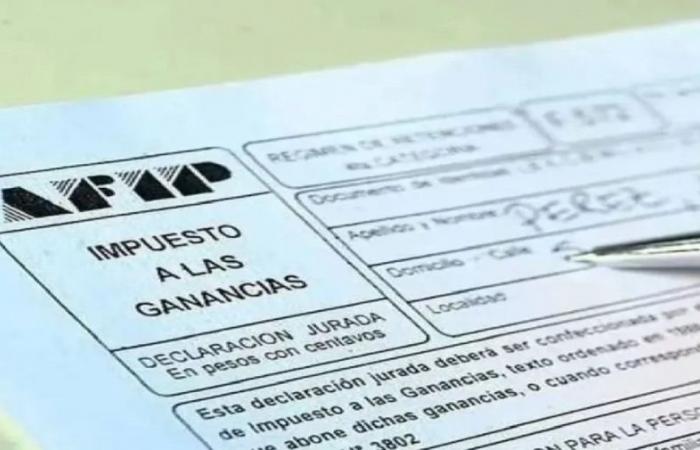The Government managed to get the Chamber of Deputies to approve the first two laws in the early hours of this Friday Since the president took office Javier Milei: the postponed Basic Law and the fiscal package that serves to consolidate the goal of balanced public accounts.
Among the most notable aspects of the tax package that was voted on is the reinstatement of the fourth category of Income Tax, which will cover single salaried workers with a gross salary of $1.8 millionyacbarbecues with two children, with a salary of up to $2.34 millions. However, the measure is not without its points of discussion, even tax specialists warn on the possibility that its constitutionality may be questioned in the short term, given that it has only been approved by one of the Chambers.
After the approval of the Bases Law, Javier Milei announced: “The change in the monetary regime is coming”
Authoritarians don’t like this.
The practice of professional and critical journalism is a fundamental pillar of democracy. That is why it bothers those who believe they are the owners of the truth.
On that plane, Claudia Pose, Tax & Legal Partner of BDO Argentina He explained to PERFIL that “Although the Constitution allows Congress to insist on certain points that the reviewing chamber could have modified, what is in doubt here is whether that would be the case, since the Senate directly eliminated said chapters, not being treated.” For ¨Pose, “it is not about insisting on changes, but directly re-discussing deleted chapters. The official position is that an elimination, in this case, is a modification to the original law, with which the original chamber has the power to insist on its restitution with an absolute majority, an issue that occurred.”
However, leaving aside this point in questionit is a fact thatThe Law was finally approved and will be promulgated shortly.
The tributary Michael The View, partner of Studio La Vista Casal considered positive reform implemented in profits while “allows us to recover the logic of the tax that traditionally governed our country, which is also the system that governs most countries in the world,” he added. Although he also stressed that “Self-employed workers are still somewhat relegated.”
Among other issues, the changes implemented improve the situation of the self-employed because the threshold for paying the tax was raised, although not as much as for workers in a dependency relationship. “In relation to the self-employed, the income tax reform should be analyzed and the reform to the monotax regime should be analyzed together,” requested La VIsta.
Meanwhile, the tax expert Guillermo Poch, from Auren Argentina, He pointed out as an important change in Earnings the modification in the aliquot scale which makes the tax much more progressive. “Before, the rate of 35% was quickly reached, today somehow you are having increases between steps of the scales between 3 and 4%,” he noted.
Unemployment and poverty are on the rise
Claudia Posefrom BDO Argentina, like his colleagues, pointed out some positive changes, including: “i) the exempt scales and minimums given by Decree during 2023 are ratified, which could allow progress with the annual settlements – currently pending -; ii) if the repeal of the cedular tax generates an adjustment to be withheld, such adjustment will not be made, but a special deduction will be included so that there are no retroactive adjustments to employees on salaries received between January 1, 2024 and the last business day of validity of the law (publication in the Official Gazette, not yet occurred),” he said.
Repeal of exemptions
In another vein, Claudia Pose of BDO recalled that Exemptions granted to items such as SAC bonuses, overtime, productivity bonuses or cash shortages, travel expenses, reimbursements for daycare or kindergarten expenses, additional payments for health workers and others will be repealed. “All of this will then be subject to withholdings, something that did not happen at present,” he said.
And he added that “the amounts corresponding to personal deductions will have semiannual updates from 2025. In the case of 2024, there will be a quarterly update in September 2024, considering inflation according to the CPI from June to August 2024, while the scales will be updated only annually.”
Among other issues, the tax specialist The View found it positive that the reinstatement of the fourth category was not retroactive: “Fortunately, this reform has no retroactive effects for the months elapsed during 2024 prior to the approval of the law. Let us remember that the minimum income amount for employees was $2.3 million; a retroactive application would have generated a tax increase for income generated from January 2024 to date,” he said.
An example of the scope of Earnings
Miguel La Vista, from the La Vista Casal Studio He illustrated with an example, in which cases the workers will be reached after the return of the imposition to the fourth category.
Earnings: AFIP again extended the deadline for filing tax returns
“A single worker who earns a net salary of $1.8 million per month (gross of $2.2 million) would pay taxes of $580,000 annually, which represents 2.5% of his income. A net salary of $2.6 would be taxed at 8%, while a salary of $4.1 would be taxed at 16%,” he highlighted.
Furthermore, he pointed out that “To reach an effective tax rate of 30%, the worker would have to earn $200 million annually. In all cases, the effective rates were calculated, that is, the amount of the tax divided by the amount of the salary,” he added.
Changes in Personal Property
As for the Personal Property Regime, the UThe threshold for paying the tax is raised from $27 million to $100 million, with a reduction in progressive rates from 0.5% to 1.5%.
Taxpayers can advance payment for five fiscal years at a rate of 0.45%, freezing their assets.
For the taxpayer Guillermo Poch“ands the reduction of the rates is reasonable and the proposed advance payment regime, because a very expensive property tax is detrimental to investments, and furthermore, taxes on personal property are not taxes that should be collected, but rather taxes that should be controlled,” he said.
Seen in this light, the tax specialist added that “a tax on personal property should have a very small rate, in fact it should be lower, and the law also provides for a rate reduction. It is a tax that should be used to control the income tax,” he said.
lr







